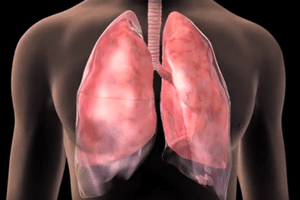
Inorganic Phostate Salts May Increase Lung Tumor Growth. Inorganic phosphate salts, a common additive used in a variety of foods, may increase lung tumor growth in laboratory settings based on a study reported in the American Journal of Respiratory and Critical Care, said the Daily Mail. The phosphates are used to increase water contents in ham, […]

Inorganic Phostate Salts May Increase Lung Tumor Growth. Inorganic phosphate salts, a common additive used in a variety of foods, may increase lung tumor growth in laboratory settings based on a study reported in the American Journal of Respiratory and Critical Care, said the Daily Mail. The phosphates are used to increase water contents in ham, bacon, and chicken said the Daily Mail. The BBC reported that inorganic phosphates are also found in processed cheeses and drinks; and the Guardian said that phosphates are used as a leavening agent in cakes, to retain moisture in meat, in carbonated drinks, milkshakes, fruit juices, and canned seafood.
According to the Daily Mail, Dr Myung-Haing Cho, of South Korea’s Seoul National University, which conducted the research, said, “Our studies indicate that increased intake of inorganic phosphates may play an important role in lung cancer treatment and suggests that dietary regulation of inorganic phosphates may be critical for lung cancer treatment as well as prevention.” The Daily Mail noted that experts believe the phosphates increase tumor growth speed and size by interfering with the chemical signals between cells.
While adding phosphates to food can improve foods texture and its ability to retain water, the BBC said the study revealed that high levels might interfere with the body’s “cell signaling systems.”
The Seoul National University research team studied a group of mice bred to develop lung tumors, feeding the animals a diet that included phosphates at two levels with one group matching what current human diets typically contain, said the BBC. After being on the diets for a one-month period, lung tissue revealed those mice on higher phosphates experienced faster and larger lung tumor growth, said the BBC.
Cho told the BBC that, “Lung cancer is a disease of uncontrolled cell proliferation in lung tissue, and disruption of signaling pathways in those tissues can confer a normal cell with malignant properties. This study demonstrates that high intake of inorganic phosphates may strongly stimulate lung cancer development by altering those signaling pathways.”
According to Cho, phosphate levels in human diets had risen, perhaps reaching 1000 mg daily, the BBC said. “The average diet today is actually closer to the one percent diet and may actually exceed it,” he said referring to the two groups of mice in which one group was fed a 0.5 percent low-phosphate diet and the other a one percent high-phosphate diet, reported the BBC.
Professor Stephen Spiro, deputy chairman of the British Lung Foundation said, “This study does suggest that it may be worthwhile assessing phosphate ingestion in the modern diet; however, further study would be required to ascertain any link in humans.” Researchers are urging that inorganic phosphates be more strictly regulated while additional studies are conducted, reported The Guardian, which also said that one survey found phosphates in human diets increased by 17 percent in 10 years up to 1993.
Cho’s research found that the phosphate diet prompted a chemical pathway known as Akt which made cells resistant to chemotherapy and radiotherapy, reported the Guardian.
The personal injury attorneys at Parker Waichman LLP offer free, no-obligation case evaluations. For more information, fill out our online contact form or call 1-800-YOURLAWYER (1-800-968-7529).


